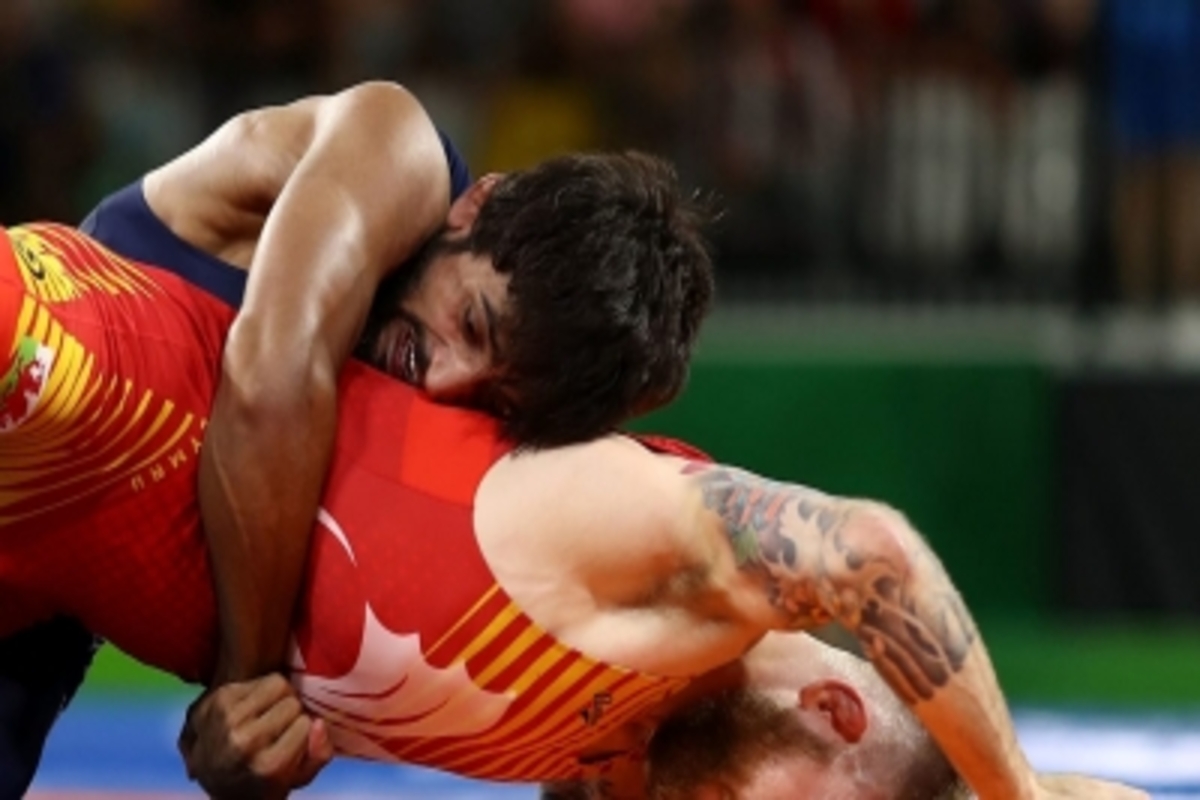Bajrang Punia takes charge as working president of Kisan Congress
Punia joined the Congress on 6th September, prior to the Haryana Assembly polls.
Punia injured his knee last month in Russia during the Ali Aliyev Memorial tournament

For the sake of the bronze medal, wrestler Bajrang Punia on Saturday fought Kazakh wrestler Daulet Niyazbekov with a painful knee and risked aggravating an injury that could have put him out of action for months, the boxer revealed on Sunday.
Punia fought his first three bouts in the Tokyo Olympics — Round of 16, quarterfinal and semifinal — with his injured right knee protected by a kneecap and layers of tape. On Saturday, he overruled objections from his coaches and refused to have the same protection for the bronze-medal match against Niyazbekov of Kazakhstan because he didn’t want his movements to be restricted and lose out on the medal.
“Winning the medal was more important. In the first three bouts, I had to protect the knee. The bronze-medal match was my last bout in Tokyo and I can take a risk. So, I did not allow the physio to strap my knee — he was not happy, the coaches too, but I told them that I would not have my movements restricted because the bronze medal was more important. I know they were worried about my future but I prevailed over them on this,” said the 27-year-old wrestler from Haryana, the fifth grappler from India to win a medal at the Olympics.
Advertisement
Punia on Saturday joined that list but he could still pay a heavy price for the decision to fight without knee strapping as they are still to assess his knee and he may have to undergo a lengthy rehab.
Punia injured his knee last month in Russia during the Ali Aliyev Memorial tournament. He had to stay away from the mat for 20 days ahead of the Olympics. Punia had initially not planned to participate in the Russia event and had also pulled out of an event in Poland.
“I decided to participate in the tournament in Russia to assess my preparation. Taking part in Poland would have meant spending time on travel. In Russia, I could train and participate so that was a good option. As far as an injury is concerned it could happen anytime, even during training. We are in a contact sport and injuries do happen. A few years back I was out of action for nine months due to an ankle injury,” said Punia, implying that he did not believe that participating in the event in Russia impacted his chances of winning the gold medal.
“Yes, the time away from the mat for 20-25 days impacted my overall preparations. I could not move freely in my bouts in Tokyo, had to protect my knee, and was not comfortable. But for the bronze medal, my entire focus was on the medal and therefore I decided to take the risk because there were no more bouts for me in Tokyo,” said Punia, who bagged the bronze in his maiden Olympics.
Punia said he will go into rehab immediately after returning home and will later sit down with his coaches and support staff to plan for next year’s Asian Games and Commonwealth Games.
Advertisement